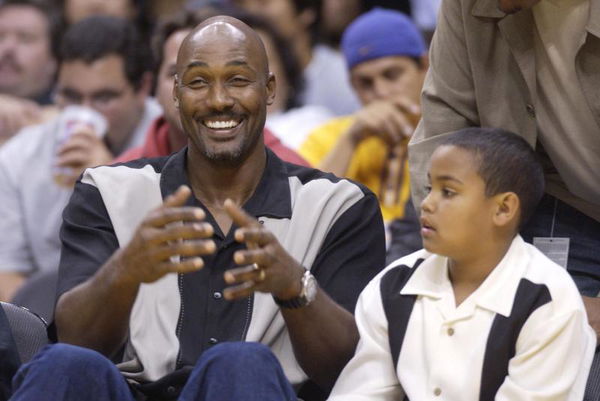

Authenticity is a scarce commodity in the arena of professional sports, where top-class sports personalities often struggle with the harsh glare of the public eye. Charles Barkley is a larger-than-life figure who is famous for his successful basketball career and his ability to speak his mind without any hesitation. He has not been shy in expressing his love for golf, which borders on addiction. Nevertheless, such commitment towards the fairways and greens does not suit everybody, especially an MVP twice and a towering figure in the NBA, Karl Malone.
He was known for being a tough and unyielding player in basketball who played together with Barkley on the same NBA stage in which his team, Utah Jazz, met the Phoenix Suns in great battles under the boards.
ADVERTISEMENT
Article continues below this ad
Karl Malone’s Unapologetic Take on the ‘Waste’ of Golf Courses”
However, this friendship between the two titans extended beyond the on-court clashes. However, people aware of the sharp disagreements between Malone and Barkley concerning golf and role modeling would be puzzled at Malone’s referring to Barkley as ‘like a brother’ as demonstrated in Karl Malone’s musings.
Although Charles Barkley is infamous for his love of golf and outspoken style, Karl Malone could always make his presence known too.

via Getty
AUBURN, AL – SEPTEMBER 28: Charles Barkley talks with fans prior to the matchup between the Auburn Tigers and the Mississippi State Bulldogs at Jordan-Hare Stadium on September 28, 2019 in Auburn, AL. (Photo by Michael Chang/Getty Images)
His famous rejoinder was that ‘a golf course is a waste of good pastureland!’; this must have struck like a bolt of lightning in the golfing community. For Malone, these green expanses meant for leisurely swings, birdies, and pars, are nothing but a wasteful use of land. That is an enormous departure from Barkley’s deep love for the sport, which in his own words would have seen him teeing off at halftime if it were humanly possible.
Ironically, it is this same difference that has created a lasting relationship between these two NBA greats. In addition to similarities in their leisure time, they all speak their mind with an unapologetic forthrightness and uninhibited directness about their stance on whatever is at hand even if it deviates. His famous Nike commercial where he said, “I am not a role model,” is a testimony of his stand. Malone disagrees with Barkley and believes that role-model athletes are chosen instead of choosing themselves, which Barkley does not accept.
ADVERTISEMENT
Article continues below this ad
The Role Model Dilemma: Charles Barkley vs. Karl Malone
Malone, argues against the conventional wisdom that athletes are obliged to have public personas. To Malone, claiming not to be a role model was too simplistic. He argues that it is irresponsible for athletes especially those in the public, to benefit from the wealth and popularity associated with fame without shouldering a share of the responsibility of being role models. Their position in itself bears this responsibility, as it is not an option.
Barkley and Malone acknowledge they are not perfect role models as they have also made mistakes and indulged in some misconduct. They know full well that a role model must also reflect the highs and lows of human nature. However, both remain entrenched in their arguments. Being a role model for Malone is associated with endorsement deals, fame, and a group of devoted fans. He accepts this responsibility wholeheartedly and is determined to be a positive influence even on such days when he may not wish to do so.
ADVERTISEMENT
Article continues below this ad
Watch This Story: “Lame Time as Usual”: Portland Fans Turn on Damian Lillard Hours Within Bucks Trade After His ‘I Could Never Be Replaced’ Release
Charles Barkley and Karl Malone represent the multiple faces of sports heroes, adding to the complexity of their roles as athletes in the ever-changing stories of sports icons.
ADVERTISEMENT
ADVERTISEMENT
ADVERTISEMENT
ADVERTISEMENT

